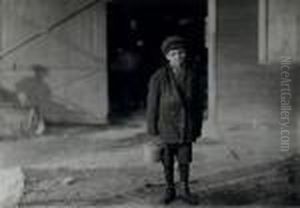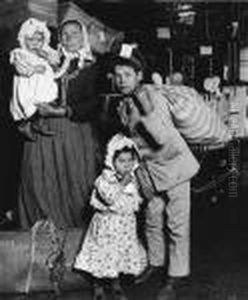Lewis W. Hine Paintings
Lewis Wickes Hine was an American sociologist and photographer, born on September 26, 1874, in Oshkosh, Wisconsin. He is best known for using his photographic skills to document working conditions and advocate for social reform in the early 20th century, particularly concerning child labor laws in the United States. Hine graduated from the University of Chicago in 1901, where he developed his interest in photography. He later attended Columbia University and the New York School of Philanthropy (now Columbia University School of Social Work), which further shaped his perspective on social issues.
Hine's work as a photographer for the National Child Labor Committee (NCLC) from 1908 to 1924 was instrumental in changing the public's perception of child labor. By capturing the harsh realities faced by children working in factories, mines, and fields, his photographs played a crucial role in the development and enforcement of child labor laws. Hine's method was both bold and compassionate; he often disguised himself to gain entry into facilities that employed children, documenting their conditions with a keen eye for detail and a deep sense of empathy.
Beyond his work with the NCLC, Hine is also renowned for his documentation of the construction of the Empire State Building. His breathtaking photographs of workers perched high above the New York City skyline not only showcased his photographic mastery but also humanized the laborers who risked their lives to build America's skyscrapers. Throughout his career, Hine remained committed to his belief that photography could serve as a powerful tool for social change.
Despite his significant contributions to photography and social reform, Hine died in poverty on November 3, 1940, in Hastings-on-Hudson, New York. His legacy, however, endures, and he is celebrated as a pioneer in documentary photography. Hine's work continues to inspire photographers and social activists around the world, serving as a poignant reminder of the impact visual storytelling can have on society.

